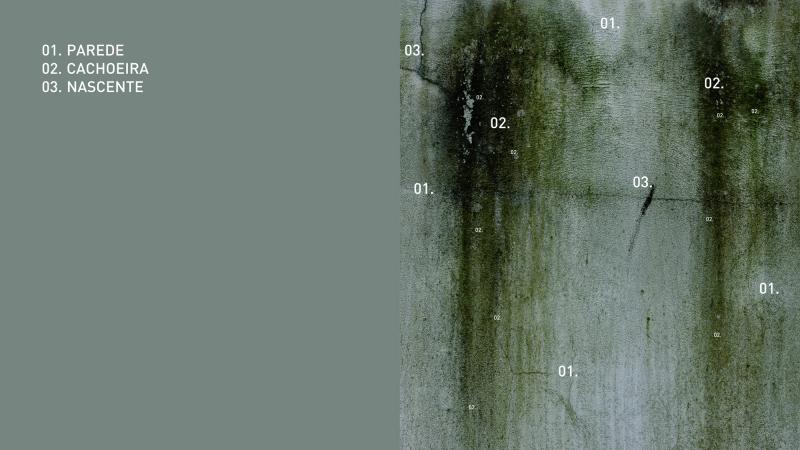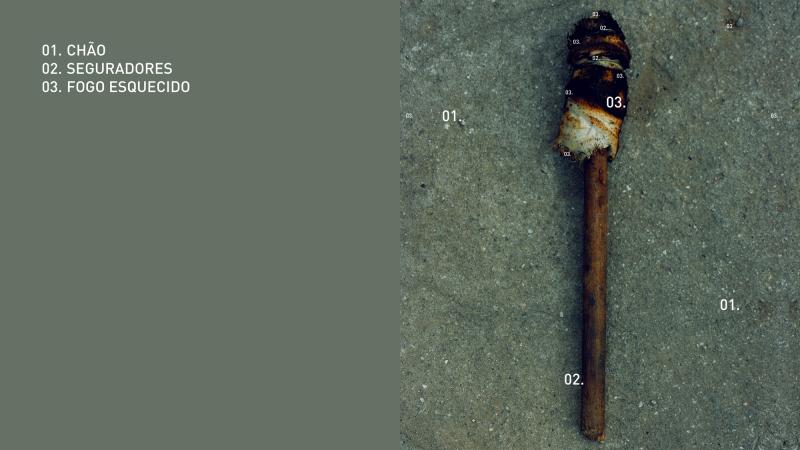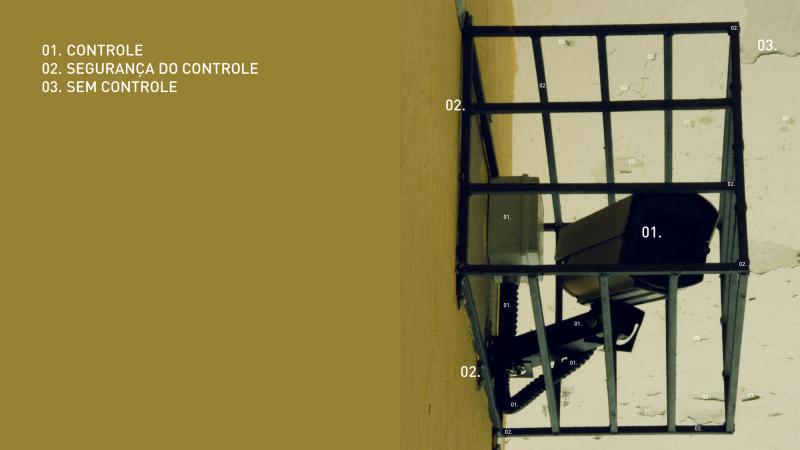Affinities, affections and elections, part three
Curated specificities

Rodrigo Araujo, Saõ Paolo artist and member of the collective Grupo BijaRi
What we experience—the information that impacts our consciousness—frames how and what we are able to think. How we frame and understand what we experience influences our approach to the world, opens (or closes) us to new experiences, new frames.

It is through a strange and often delightful confluence of accident, synchronicity, bumble, attentiveness, purpose, determination, chance, intuition and research that we locate the work we feel moved to do—or it locates us, places us, makes space for us.
In these “affinities, affections and elections” posts—of which this will be the last, for now—I’m trying to articulate how it is I find the work I read and/or translate from cultural contexts that are very different from my own. This post documents some of the conversations I had as I began to tell people I was writing these commentaries for Jacket2. It is partial, incomplete, subjective, and limited by my own knowledge and ways of moving through the world. It is an invitation to you, dear reader, to do more, think more, read more, have more conversations, and expand your knowledge through your own ways of moving through the world.
When I was in Mexico doing the research for Sin puertas visibles, the anthology of contemporary poetry by Mexican women for which I did the selections and translations, I found it enormously frustrating to encounter people who would immediately assume they knew the table of contents of my book in advance, based only on hearing about the premise of the project—of course I’d be including this or that poet, as whoever-it-was had already been widely anthologized in Mexico, and were clearly part of the legitimated who’s who of Mexican poetry. Of course not. I’m not interested in being told what to do, or in being spoon-fed answers to questions whose only answers are further questions. Yet my resistance to the presumption of value conferred by the selections of other editors was balanced—seesaw style, perhaps—by my grateful reliance on other, more local readers whose perspectives I appreciated and trusted, who might lead me to journals, presses or writers I might not have encountered otherwise. In the same way that we might accept advice, tips or instigations from a friend, teacher, librarian or writer/artist we respect at home, we might purposefully seek the somewhat random yet not random threads of suggestion that come from people in other contexts and cultures.
For example:
On a visit to Tijuana, Gaby Torres Olivares might give you some copies of the gorgeously-designed poster-style visual-poetic magazine Metrópolis, produced in editions of 3000 in Guadalajara and distributed free throughout Mexico with the support of government-sponsored cultural institutions. She and Jenny Donovan (who together edit and explode La Derramadora Press) might take you to the Librería Sor Juana, the bookstore that hosted this year’s Feria del libro independiente (Independent Book Fair) where you might discover a number of exciting small press projects—like Quimera Ediciones, the first openly queer press in Mexico. Or like Lenguaraz, which publishes a magazine called Lenguaraz (“literatura para no leer”—“literature not to be read” or “literature for not reading”) and produces lovely books as well. Or like MaNgOs de HaChA, which aims to expand expressive possibilities by publishing innovative texts in Spanish and translations in bilingual edition. Or like Editorial nortEstación, dedicated to non-conventional narrative structures in writing. You might wander uber-hip (but amazingly not annoyingly so) Pasaje Rodríguez where the tiny but huge-hearted bookstore el grafógrafo, co-host of the Feria del Libro Usado (Used Book Fair) provides a home base for many autonomous literary projects, including Colectivo Intransigente, a collective that publishes a bimonthly literary journal and generally raises poetic hell in local bars and performance spaces and on the streets.
Or Omar Pimienta might put a copy of the hand-sewn (thanks to Karen Plata) journal poemas intervenidos in your hands; the round-robin response/intervention sequence has no internet presence that I could discern, but Peródico de Poesía, one of the most expansive and dynamic spaces for Mexican poetry (edited by poet and translator Pedro Serrano) published a superb interview with the project’s editor, Luis Alberto Arellano and fellow poet Julián Herbert. poemas intervenidos calls to mind the wonderful (and now lapsed) project Pom2—both projects invite conversation-through-poetry, encouraging writers to get inside each other’s work, to write from within someone else’s structures or frameworks.
Or for example:
You might write a friend in a faraway place—in this case, I wrote to Virginia Lucas, whose poems you can read in Aufgabe #9, to ask her which writers or independent small press projects she might recommend in Montevideo specifically, or Uruguay generally. She responded by sending a link to the online journal/blog .txt (also known as puntotxt), which features recent Uruguayan writing, and some notes about La propia cartonera, the Uruguayan iteration of the cartonera projects I wrote about a few posts back. She mentioned that La propia cartonera is a not-for-profit press that works with a community center for kids: “They make the books using recycled cardboard and the kids paint the covers, so in that sense, each book is a unique object—no two are the same.” She also highlighted RIEPA, which stands for Red Internacional de Editores y Proyectos Alternativos (International Network of Alternative Presses and Projects), whose tag line is "plowing the fields of bibliodiversity" (and indeed the site is so diverse as to be a bit dizzying), and Libro a la carta, not a small-press or literarily innovative project necessarily, but fascinating as a Spanish-language version of Bookmobile or Lulu. Virginia noted: “It’s difficult here, what’s considered independent... There’s no distribution of independent projects in the media...” I’d be excited to see someone (not me) do a study comparing two cultures that are relatively close (geographically and in some other ways)—Argentina and Uruguay, for instance—where one has experienced an enormous flourishing of DIY culture and the other has not. What are the conditions that transform agency and sass and persistence (present in most if not all cultures, I’d imagine) into autonomous tiny press projects and homemade reading series and anti-authoritarian art in the streets?
Or for example:
You might draw on the knowledge of someone who is already clearly committed to open-sourcing his thinking about literary worlds generally and his own cultural contexts specifically. I wrote to Guillermo Parra, whose superfab blog venepoetics is one of the best sources I know for thinking about literature, translation, and what’s going on elsewhere (not exclusively in Venezuela, but significantly there). He wrote:
I wanted to send you along some links to various projects I think are interesting right now in Venezuela. There's a lot to sort through. The first four are state-run publishing houses, and while they're relatively big and funded by the Venezuelan government (not at all DIY affairs), they've been publishing excellent books recently.
Monte Ávila Editores Latinoamericana
Monte Ávila Editores was founded in 1968 and they've been crucial to Venezuelan literature since then, publishing all sorts of important work, including poetry, fiction, history, theory, etc. by Venezuelan and international writers. During the last decade, they've sponsored the Concurso Para Obras de Autores Inéditos (Contest for Works by Unpublished Writers), which has been an avenue for many younger writers to get their first book published. Monte Ávila also runs year-long writing workshops in fiction, poetry and essay writing that have served as places where many young writers have been able to develop their work. Monte Ávila is currently run by the novelist Carlos Noguera.
Biblioteca Ayacucho
Biblioteca Ayacucho only publishes a few books a year, and they focus on Latin American classics and stuff by established writers. However, much of their catalog is available in free PDF editions at their website. They've been around since 1974.
Fondo Editorial El perro y la rana
El perro y la rana is very young, they were established in 2006 and they publish a lot every year, some of it amazing, some of it mediocre. But they've got great designs for their collections and serve as a place where younger writers might have a chance at getting their work published. Their web site can be hard to navigate. El perro y la rana is currently run by the poet William Osuna.
Casa Nacional de las Letras Andrés Bello
Foundation that publishes a few books and organizes readings, workshops and poetry festivals. This summer, they put on the 8th Festival Mundial de Poesía. Run by the poet Luis Alberto Crespo, whose poems I've been translating recently.
Ficción Breve Venezolana
For the moment, Ficción Breve is undergoing a renovation, so the page barely has anything. But it's usually a great source of information about Venezuelan fiction, with interviews, reviews, short stories and other great features. It's been run by Héctor Torres and Lennis Rojas since 1999.
El Apéndice de Pablo
This is a collective blog, curated by the novelist Mario Morenza. It's also a collective of poets & fiction writers that have organized readings throughout Caracas during the last three or four years. They've been less active in the last year or so, and the quality of what gets published in the collective blog can vary. But they've got great stuff in the 7 issues they've published so far. It's kind of like a blog magazine.
El Salmón – Revista de Poesía
This is a magazine run by two poets in Caracas, Santiago Acosta and Willy McKey. The goal of the magazine is to highlight and rescue work by Venezuelan poets that has been overlooked by readers and critics in recent years. Some of the issues are available on a link to the issuu site on their sidebar. El Salmón also organizes readings and presentations in Caracas.
Editorial Memorias de Altagracia
This is a very small press run by the novelist Israel Centeno and his wife the poet Graciela Bonnet. The press began in the mid-1990s, as a branch of the activities of the literary group Eclepsidra, which was a collective of fiction writers and poets. Especially in the 90s, Memorias de Altagracia published some excellent stuff. They've been less active in recent years, as Israel and Graciela are in the process of leaving Venezuela.
Afinidades Electivas Venezuela
A collective blog based on others in Latin America and which I imagine you've seen, there's one for the U.S., too. But they haven't updated it since last August, not sure if it'll continue.
500 ejemplares
Web magazine/blog edited from Mérida by the fiction writer Carolina Lozada and her husband the poet Luis Moreno Villamediana.
ReLectura
Web site run by Luis Yslas and Rodrigo Blanco Calderón (an excellent fiction writer, whose two books Una larga fila de hombres (Monte Ávila Editores, 2005) and Los invencibles (Mondadori, 2008) I highly recommend, although they're difficult to find outside Venezuela.) ReLectura's web site can be difficult to navigate, but it's got some great short stories, interviews and reviews. Check out the comments on this excellent short story by Carlos Ávila.
Los Hermanos Chang
Web magazine that publishes new poetry and fiction. Edited by the fiction writers José Urriola and Fedosy Santaella.
Domingos de Ficción @ Prodavinci
Web magazine Prodavinci started about two years ago and they have this great section of short stories published every Sunday. The section is on hiatus right now, hopefully will start up again soon.
Letralia
Web magazine edited by Jorge Gómez Jiménez since 1999, which covers world and Venezuelan literature. Gómez Jiménez also keeps a personal blog.
El Cautivo
Web magazine edited by the poet María Antonieta Flores.
Per-Versos
Literary collective based out of Maracaibo. They organize readings and events around Maracaibo.
Letras (Ciudad CCS)
Weekly literary supplement published on Saturdays by the free newspaper Ciudad CCS, which is funded by the Alcaldía de Caracas. This supplement only started a few months ago, but has published some excellent work.
Derrelictos (Ana Julia García)
Personal blog written by a fiction writer whose excellent first book, Cancelado por lluvia, won the 2005 edition of the Premio de Narrativa para Escritores Inéditos de Monte Ávila Editores.
Lezámico (Néstor Mendoza)
Personal blog written by young poet in Maracay.
Vademécum (Natasha Tiniacos)
Personal blog of a poet whose first book Mujer a fuego lento (Editorial Equinoccio, 2007) received the Premio Nacional Universitario de Literatura. Natasha occasionally translates American poets into Spanish, and has recently opened the blog The Verbatim Project which aims to do something similar to my Venepoetics, translating Venezuelan poets into English.
Blog Caribe (Gabriel Payares)
Personal blog of fiction writer Gabriel Payares, whose fantastic first book Cuando bajaron las aguas won the Premio Para Autores Inéditos de Monte Ávila Editores in 2008.
Nocturna, mas no funesta (Eleonora Requena)
Personal blog of the Caracas poet Eleonora Requena.
Cartel de Caracas (Yaneth Rivas)
Personal blog of visual artist and muralist whose work can be seen on the streets of Caracas.
*
I realize it sounds hokey, but part of what I’m trying to say here—in addition to encouraging folks (myself included) to continue to read beyond our boundaries and borders—is don’t be shy! Indulge your curiosities enthusiastically! Don’t be afraid to ask questions! Part of dismantling systems of privilege, undoing the dominance of the dominant and remaking the world as we imagine it to be at its best is being willing to admit what we don’t know and to seek out knowledge in any way we can. It’s not up to others—whoever those “others” might be—to explain their existence or perspective to us (whoever “we” may be); rather, it’s up to us to find ways into experiences, cosmologies and knowledges that are distinct from our own. One way to do that is to be open to conversation in all its varied forms. In all its varied formlessness.
Trans positions